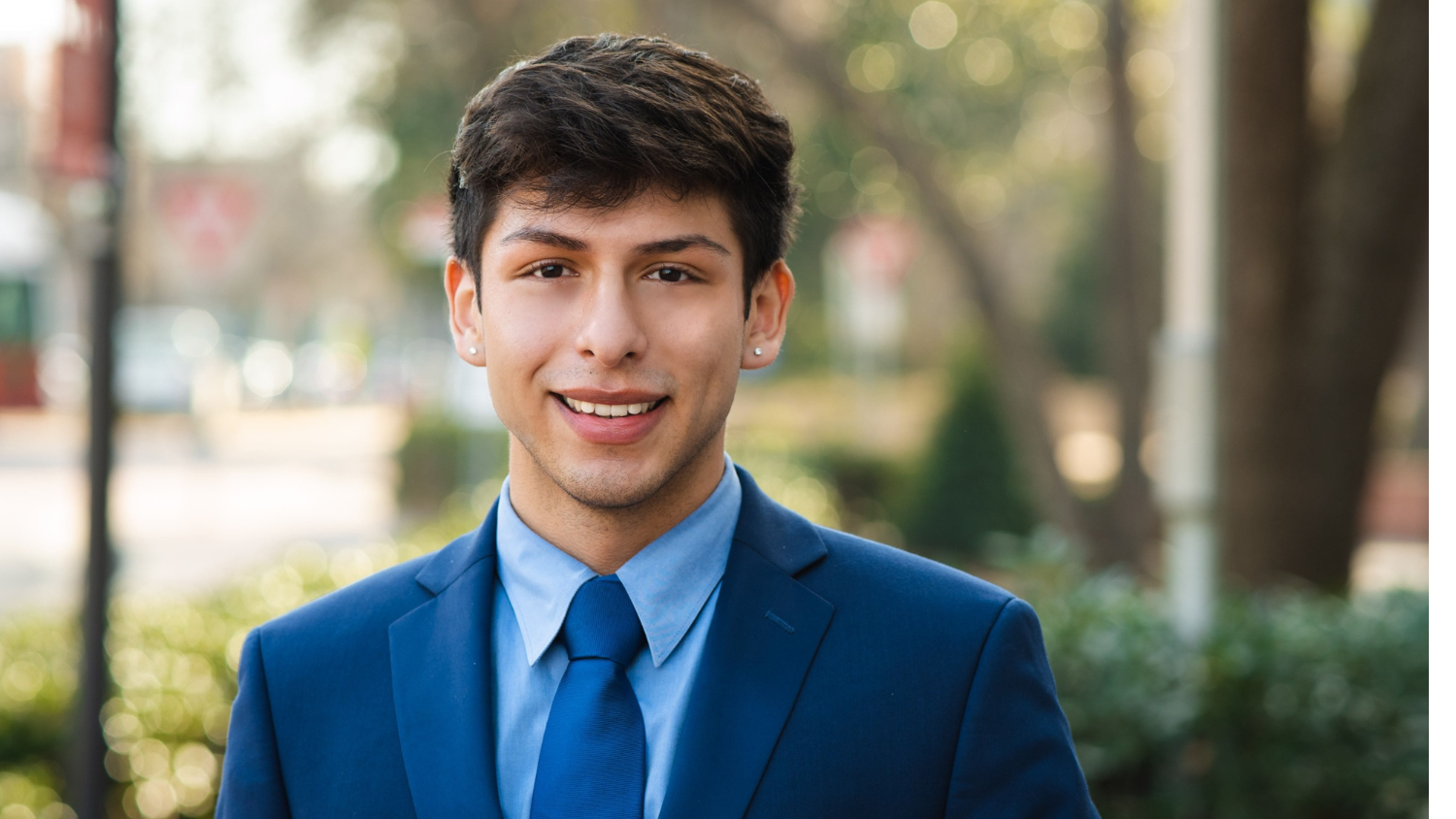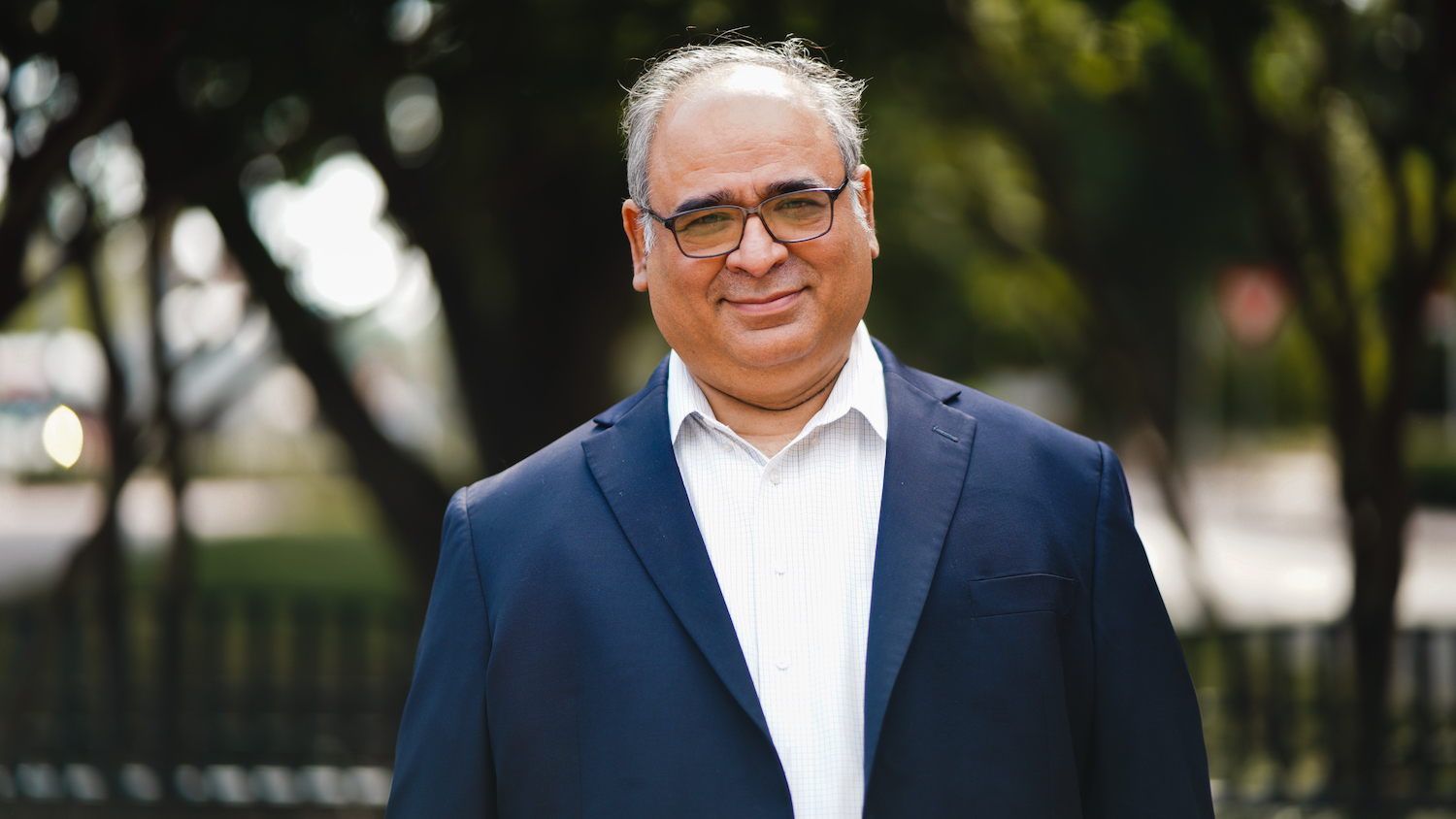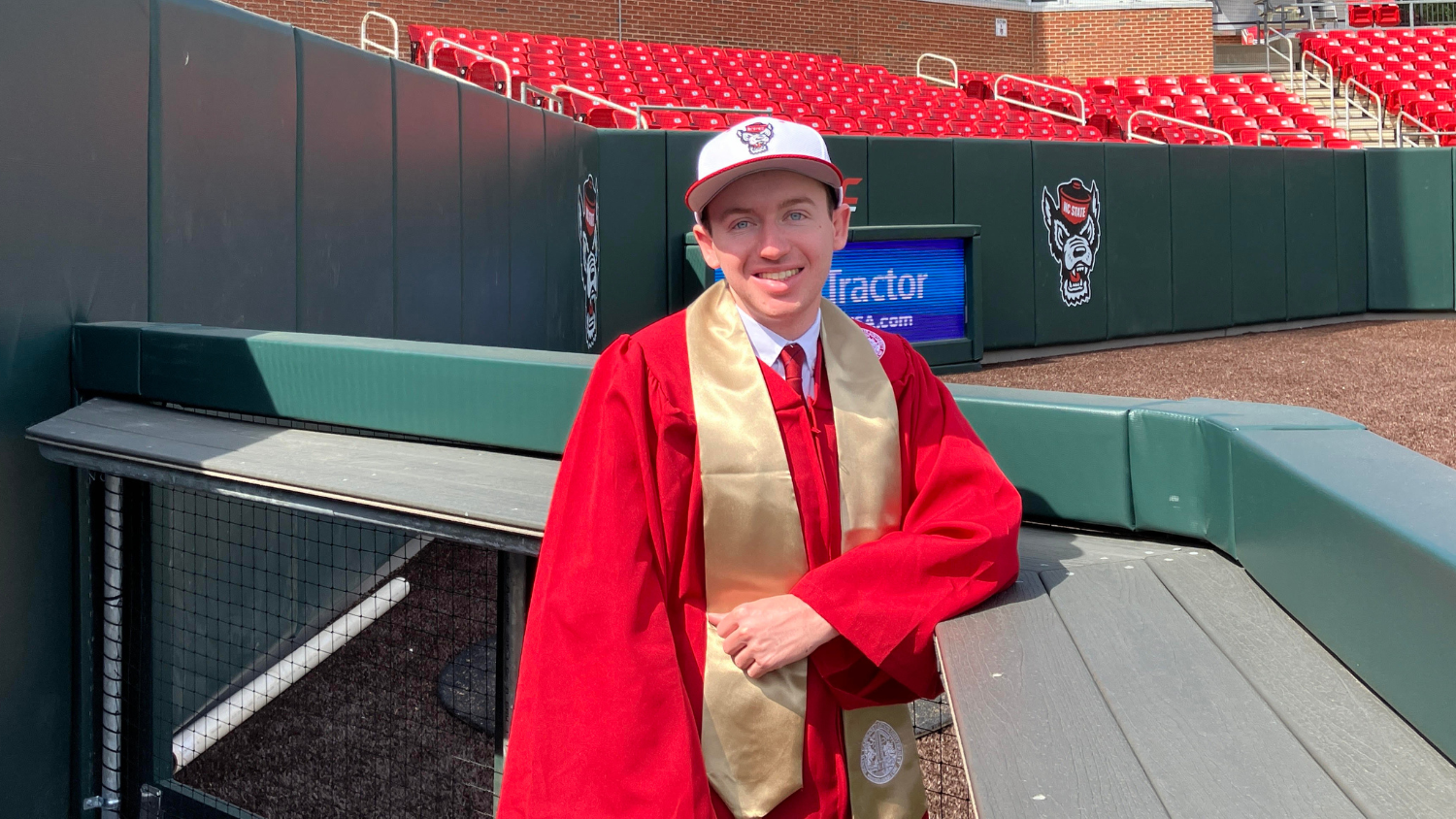Poole’s Diwali Celebration Shines Bright Light on Diversity, Inclusion
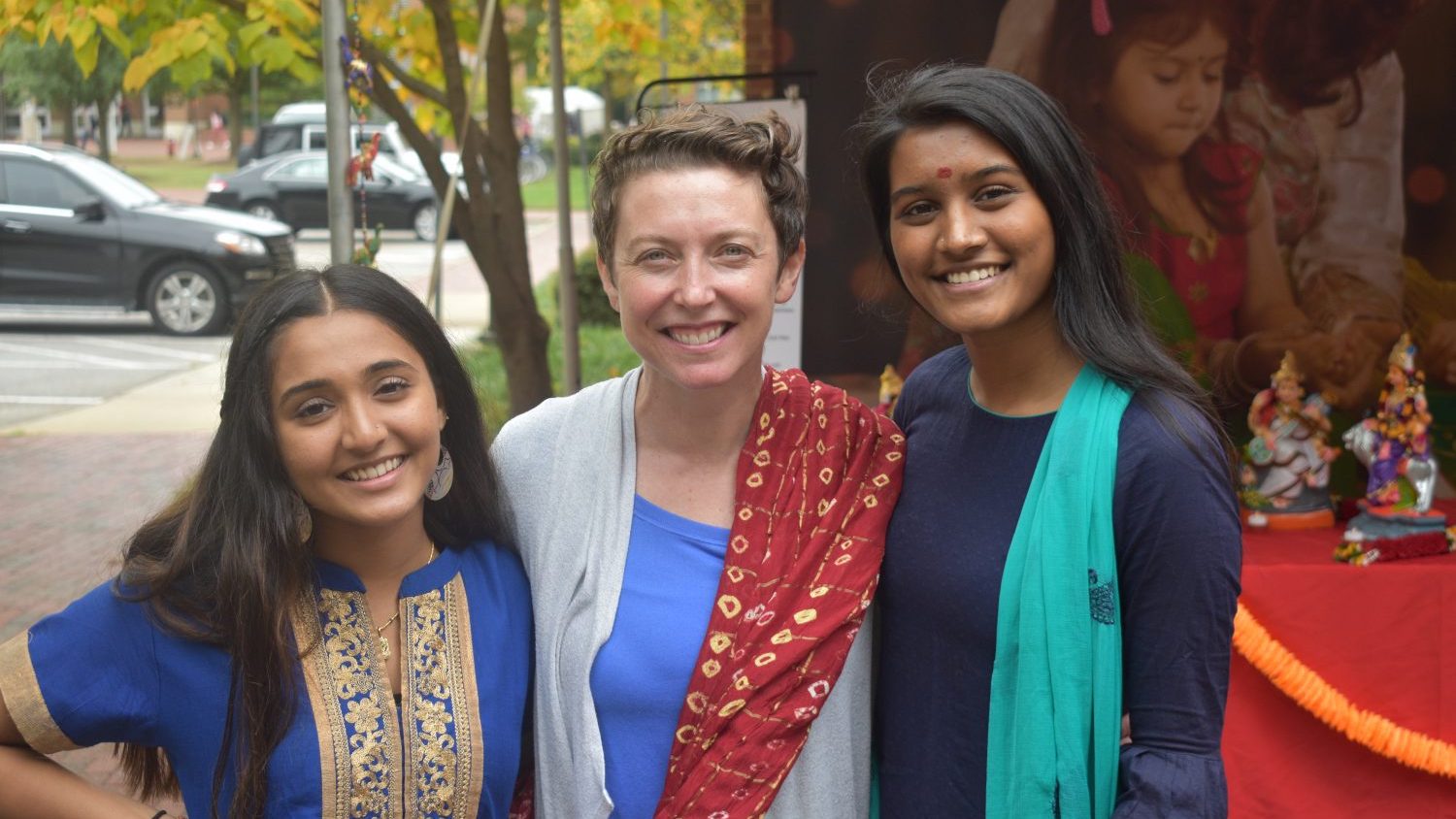
Poole College of Management held its second annual Diwali Celebration on Tuesday afternoon, with an engaged and hungry crowd filling the east plaza of Nelson Hall.
An annual festival of lights most commonly associated with Hinduism, Diwali focuses on good fortune and prosperity — light over dark — during a five-day period in the fall and marks the Hindu new year.
While the reasons for celebration vary based on religion (Buddhism, Jainism and Sikhism also celebrate Diwali), there is always a lot of food, positive thinking and a proliferation of light, in the form of sparklers, fireworks or lamps.
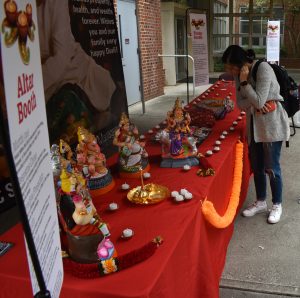
The Poole College event originated with a request in 2018 from then-junior Jeyashree Haridoss (Business Administration and International Studies ‘20) for Tayah Butler, the Office of Undergraduate Program’s diversity and inclusion director. Haridoss was interning for Butler and expressed the need for a proper Diwali féte.
“Jeyashree literally sat down in my office,” Butler recalled, “and said, ‘Ms. Butler, I would really love to see Diwali centered and celebrated.’ And I said, ‘Yep. Tell me what you want, and I’ll make it happen.’ ”
Given the large South Asian community at NC State University and Poole College, Haridoss said, a Diwali event seemed like a natural addition to the schedule.
“It was just a need that I saw because we have so many students that do practice Diwali,” Haridoss said. “Also, [there are] students that aren’t at home for the holiday or are far away from family and aren’t able to celebrate.”
This year’s celebration received input from an additional source, Rani Madhiwala (Business Administration ‘22), who is currently interning for Butler.
In conjunction with Butler and Haridoss, Madhiwala helped modify and update the 2019 iteration by moving the festivities outside to the east plaza (from Nelson Hall’s Port City Java); providing informational banners, posters and handouts; and setting up a variety of booths to house henna tattooing, a puja (prayer) altar and traditional Diwali artifacts for photos — not to mention, a greater menagerie of lights.
And, of course, there was the food.
Under tented shade sat a kaleidoscopic and aromatic buffet of paneers and naan (on the vegetarian side), chicken tikka masala and biryani (on the nonvegetarian side) and vegan delights, such as cauliflower and fried dough, wading in majestic pools of syrup.
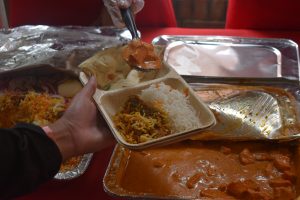
Yet, the organizers wanted attendees to leave with more than satiated stomachs and tales of delicious (free) food.
“We want to make sure we’re educating people who don’t [celebrate Diwali], so that everyone in the community is able to enjoy this event,” Haridoss said. “If [participants] could take away one piece of true, authentic information about the event, then that’s a win.”
On a larger scale, the purpose of the second annual Poole College Diwali Celebration was to expand the college’s sense of identity and increase community understanding about the diverse world people inhabit, Butler said.
Poole College Dean Frank Buckless, who was talking with students and staff at the event, echoed Butler’s sentiments.
“We want to embrace diversity because by embracing that diversity, creating an environment where everybody is valued,” Buckless said, “we’re going to have more innovation, we’re going to work effectively together and we’re going to have students who are better prepared to work in a global world.”
There was also the moral imperative of providing students who couldn’t be with their families a sense of home and comfort.
“It was a way for [students] to still feel like they were able to celebrate it,” Madhiwala said. “It’s a day of positivity, and being around that feels good.”
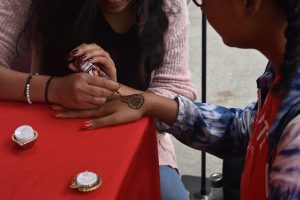
With the food line snaking across the street, the large pockets of people conversing at booths and tables and the array of cultures and communities interacting, Diwali succeeded on multiple levels.
Jonathan Tewolde (Civil Engineering ‘22), who does not observe Diwali, was one of those specific successes.
“I just walked by, saw it and thought it was pretty cool,” Tewolde said. “I came here last year and it was amazing: the food was great, the people were nice, I tried on the clothing. It was pretty nice.”
- Categories:
